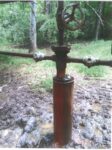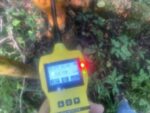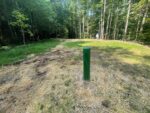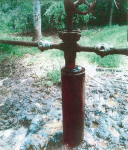- Like
- Digg
- Del
- Tumblr
- VKontakte
- Buffer
- Love This
- Odnoklassniki
- Meneame
- Blogger
- Amazon
- Yahoo Mail
- Gmail
- AOL
- Newsvine
- HackerNews
- Evernote
- MySpace
- Mail.ru
- Viadeo
- Line
- Comments
- Yummly
- SMS
- Viber
- Telegram
- Subscribe
- Skype
- Facebook Messenger
- Kakao
- LiveJournal
- Yammer
- Edgar
- Fintel
- Mix
- Instapaper
- Copy Link
 |
|
||||
| On Friday a new forced pooling bill, SB 576, was introduced in the state Senate. While WV SORO has said that a “good” forced pooling bill would be a good thing, the devil is in the details and SB 576 is one of the worst bills yet introduced.
Keep reading to learn more about why this bill is bad for both surface and mineral owners, then contact Senate Judiciary Committee members and your Senators and tell them to oppose this shameful attempt to take away the property rights of West Virginians. (Click here for a list of Senate Judiciary Committee member and their contact information.) Like the forced pooling bill (SB 244) that was introduced earlier in the session, SB 567 contains two parts: “lease integration” or what we call “invisible ink,” and “co-tenancy,” which we have dubbed “majority rules.” “Invisible Ink” (AKA: Lease Integration) Where two neighboring tracts are held by old leases that do not have modern pooling clauses, SB 576 provides that the driller can force those two tracts into a pool for horizontal drilling. WV SORO will oppose this so-called “lease integration” provision of the bill. Why? A third of WV SORO members also own their minerals. In most cases the minerals are subject to old fashion leases that do not have pooling clauses and only provide for a 1/8th (12.5%) royalty. Drillers try to get mineral owners to modernize these leases with pooling amendments, but EQT and some other drillers will not modernize the leases to modern royalty amounts of 15% to 18% to even 20% that are justified by the inflated economics of horizontal shale drilling. This so-called lease integration provision will stick many of our members with the old 1/8th (12.5%) royalties. This so-called “lease integration” provision of the bill does protect surface owners by requiring that the driller have a surface use agreement with the owners of any surface that will be disturbed. WV SORO appreciates that, but WV SORO does not think the driller has the right without that provision to use one surface tract to drill into neighboring mineral tracts from these monstrous well pads that were not contemplated at the time of severance or leasing. “Majority Rules” (AKA: Co-tenancy) The worst part of the bill is the other part of the bill, the so-called “co-tenancy” provision. For years, WV SORO has advised that surface owners should try to buy some partial interest in the minerals underlying their surface, no matter how small. That is because under current law every owner of a partial interest in the minerals has to sign a lease before the driller can drill, so surface owners can protect themselves in the leases that the driller needs from them. Also, we have advised people considering buying surface land to look into whether they will own any small portion of the mineral interest before buying or agreeing on a price. The so-called “cotenancy” part of the bill will force the surface owner’s interest into a pool unless the surface owner owns at least a 1/3rd interest in the minerals. Also, the surface owner’s interest will be forced into the pool at a royalty percentage that is the average of what the drillers have talked the owners of the other 2/3rds of the mineral owners into. Finally, no protection from use of the surface owner’s land appears written into the so-called “cotenancy” parts of the bill. Surface owners will be entitled in the bill to royalties that would be paid to unknown or unlocatable mineral owners, but unlike an existing statute often used by drillers, the surface owners would not get title to those mineral interests. Please contact Senate Judiciary Committee members and your Senators and tell them to oppose this shameful attempt to take away the property rights of West Virginians. ASTs, Pipelines, & Other Legislative NewsThis week saw the introduction of HB 2811, which would weaken the Aboveground Storage Tank (AST) Act by exempting 29,000 tanks owned and operated by the oil and gas industry. The industry claims the AST Act imposes a crippling regulatory burden particularly on small oil and gas producers. However, the majority of these tanks (26,700) are not considered “regulated” tanks under the Act. Rather, owners and operators are merely required to register these tanks with the state, and display a marker listing their registration number along with emergency contact information. Owners and operators must also pay a one-tim registration fee that ranges from $20 to $40 depending on when the tank went into service. This hardly seems to be a crippling regulatory burden! The House Judiciary Committee will be holding a public hearing tomorrow on the bill. Please contact committee members and tell them to keep in place the registration and regulatory requirements for the tanks the bill proposes to exempt. Tell them we shouldn’t take the industry’s word for it that the tanks they want to exempt contain subtances that are not dangerous and pose no threat to our drinking water. On the bright side, our “land reunion” bill, SB 369, which would begin to reverse the trend of separate ownership by giving surface owners a first chance to own any interest in the minerals under their land that are sold for non-payment of property taxes, was taken up by the Senate Energy, Industry, and Mining (EIM) Committee on Wednesday before being referred to a subcommittee. Please contact EIM Committee members and urge their support. Click here to listen to “the West Virginia Land Reunion Song” and learn more about how this process will work. The other good news is that the “right to trepass” bill (SB 245 & HB 2688), which would give natural gas companies the right to access private property for the purpose of surveying without getting landowner permission, appears to be stalled in both the House and the Senate. We’ll let you know if this bill regains its momentum. In the meantime we are working with delegates to introduce a bill that would change the determination of “just compensation” to be paid to landowners when eminent domain is used for a pipeline and the pipeline does not connect to a residential or commercial end user. The bill would allow property owners to share financially in the gains from the various interstate pipeline projects, if they are approved and built. Click here to read WV SORO co-founder Dave McMahon’s op-ed on “public use” and its worth to landowners. We have also recruited sponsors for a bill that would implement the recommendations of the studies mandated by the 2011 Horizontal Well Control Act. When the results of the studies were released in 2013, the DEP reported to the Legislature that additional protections were needed “to reduce potential exposures” and” to provide for a more consistent and protective safeguard for residents in affected areas.” However, these safeguards, which include fence-line monitoring for noise, dust, and other air emissions from horizontal drilling sites, were never implemented. For more news, as well as some great op-eds and letters to the editor by WV SORO members and others click here. Thanks for reading and taking action. We’ll continue to keep you posted. |
|||||
|
West Virginia Surface Owners’ Rights Organization |
|||||










